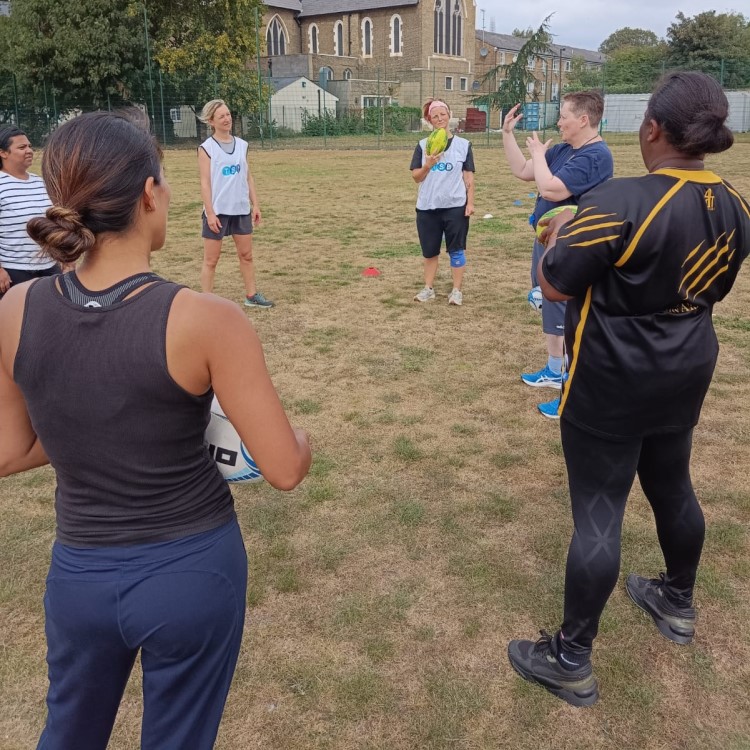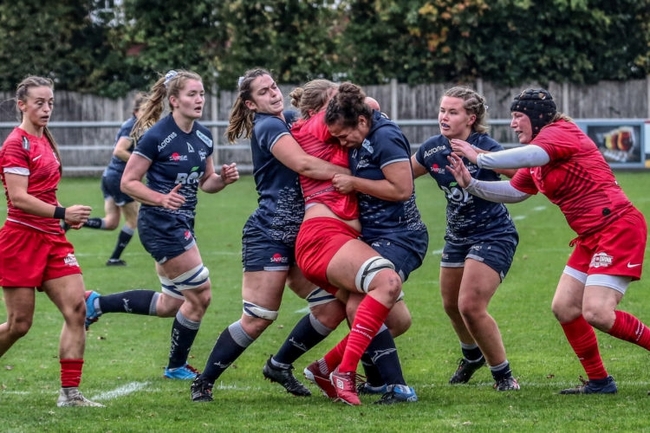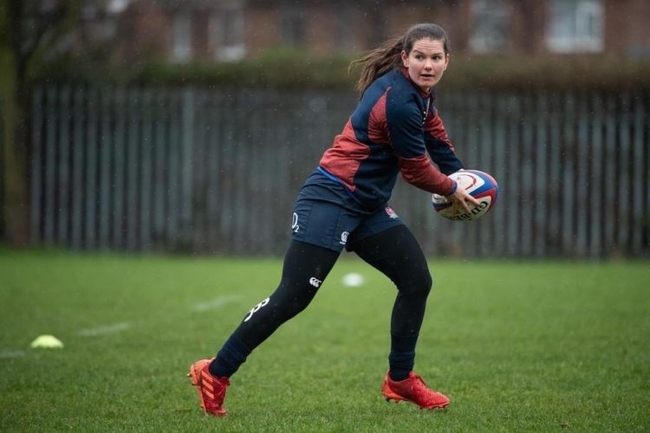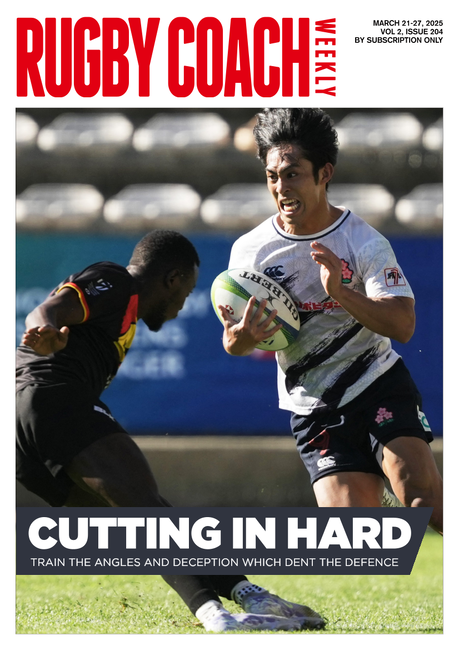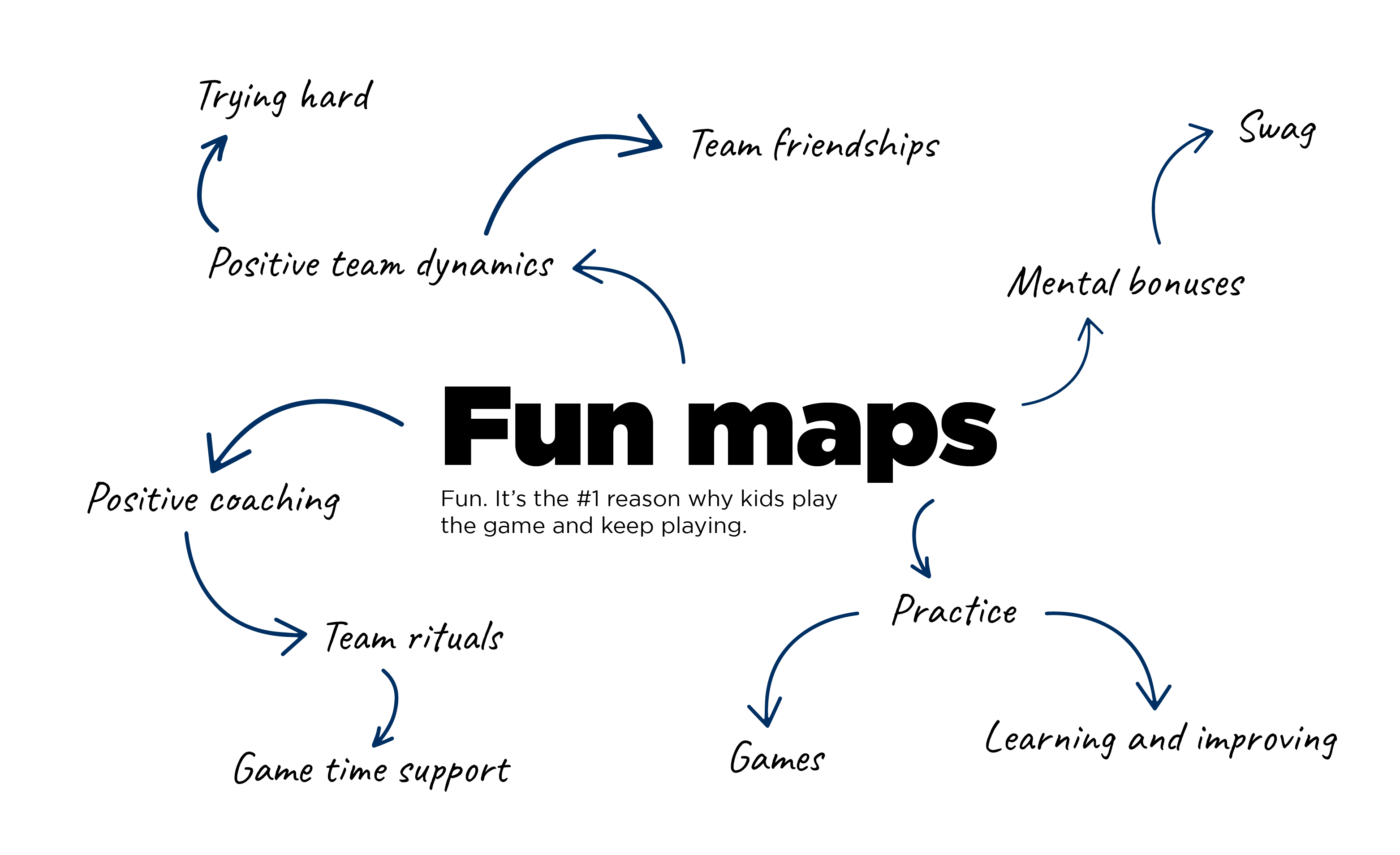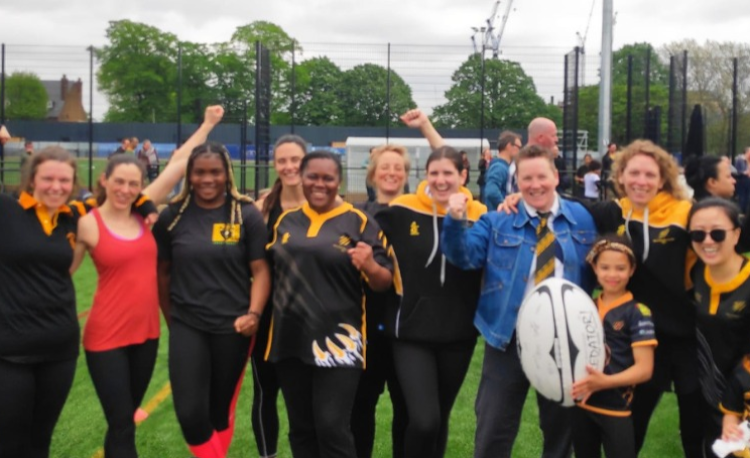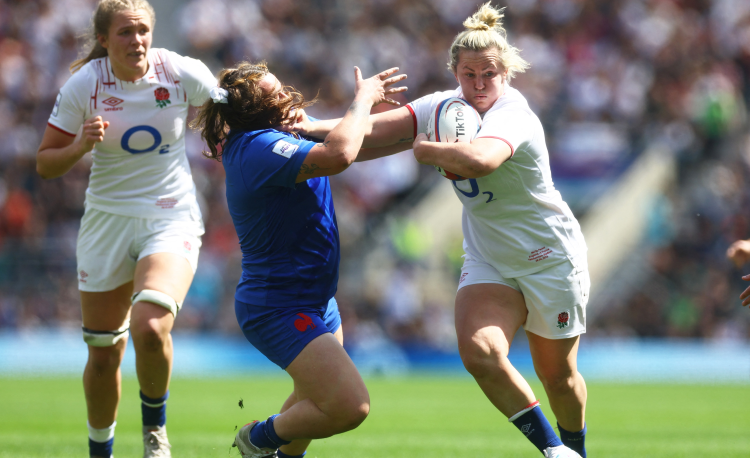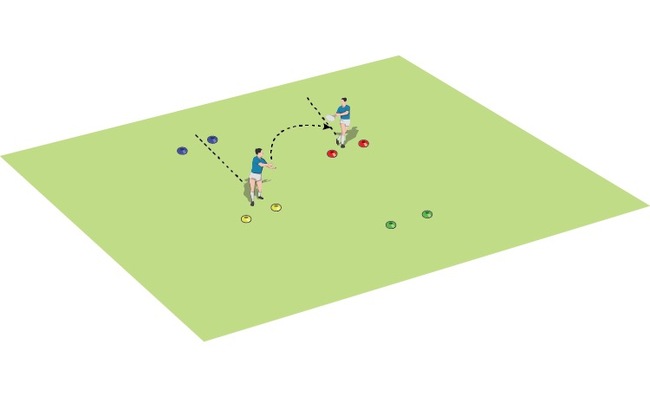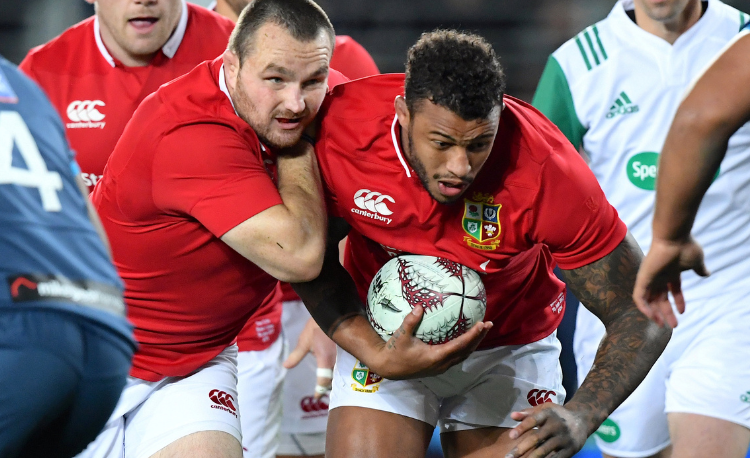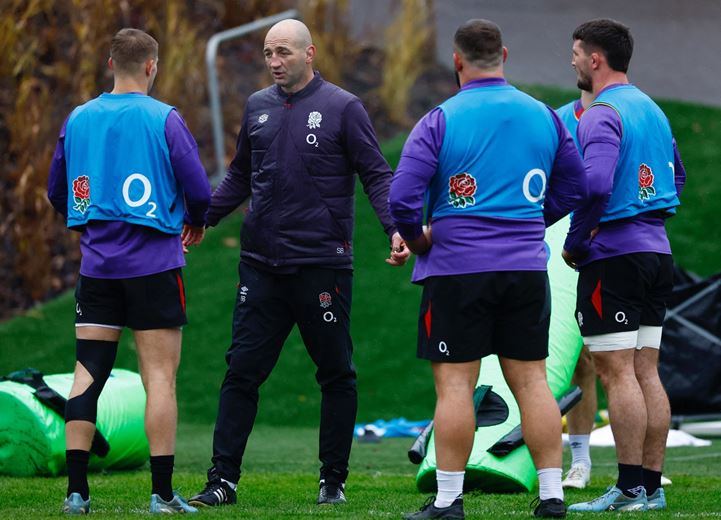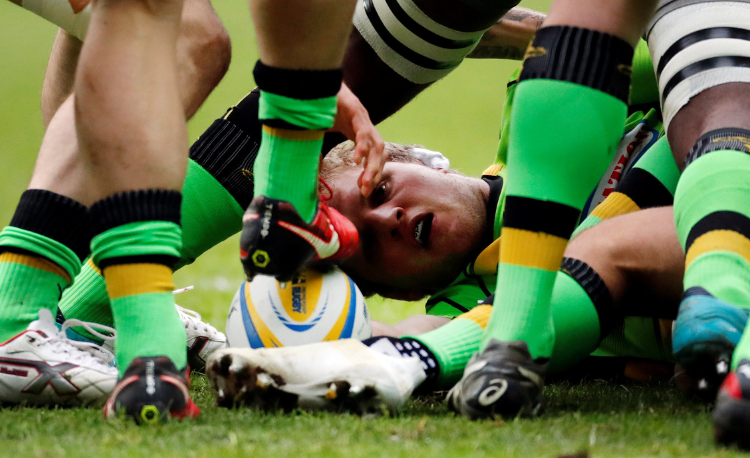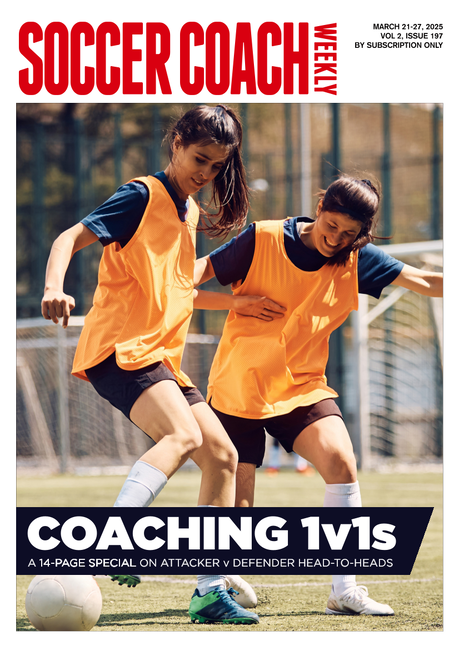'Netball with attitude!'
MAGGIE HAMMOND on persuading a group of mums to take up touch rugby.
Sports England research tells us that only 39% of women are fit enough to be healthy – yet more than 13 million women said they would like to do more exercise.
Sports Direct-funded research reported in 2022 that 56% of women who do exercise stop completely in the winter months.
And a recent report commissioned by sportswear brand Asics, into women and exercise, revealed that more than 50% of women who exercise are dropping out anyway, regardless of the time of year.
The gender gap in health, happiness and wellbeing is a real thing.
Could rugby be the answer?
At Southwark Tigers RFC, we have a women’s touch rugby team. We are largely non-competitive, having only played a few matches. Our players range in age from women in their 30s to visitors playing well into their 70s.
The players are largely mums or relatives of the children who play for the club. We train at the same time as the youngsters. We don’t expect players to have any special equipment and we have our own kit.
We are self-styled as The Lillies, a play on the band of warriors from the children’s book Peter Pan, led by Tiger Lily.
Different needs for coaching women and girls
Here is a good reminder about making assumptions around different backgrounds and the complexity of the issues around women and girls and sport.
One of the mums was watching her kids play; a new family to our club. She was also watching us, the women, play.
She was wearing a modest dress, associated with some religious cultures and communities, including a scarf. I invited her to join us, asking her to tuck in the ends of her scarf for safety.
“What are we doing?”, she asked. “Touch rugby," I said. "Like netball, with attitude!”. On she went, nodding in acknowledgement – or so I thought – and she joined in with great gusto.
During one of the gaps in play, she asked: "How am I doing?". “You are doing great”, I reassured her, before asking: “What sort of sport did you play as a kid?".
It transpired she was from Afghanistan. She had never played sport before, never run before, nor exercised in public or in private.
In her country of origin, of course, women and girls were not allowed to.
How did we start?
About five years ago, having tried many different ways to start a women’s and girls’ section at our club, I invited mums, at our end-of-season awards event, to play a short game of touch rugby against their children. They loved it.
The following September, I spoke to mums on the touchline and invited them to join our rugby fitness group.
Some of the mums used the time while their kids were training to go for a run. Others stood in the cold, trainers on, and just watched.
I asked if they would like to join us in training, playing "netball with a bit of attitude".
The women essentially got the idea – no contact, team sport with a bit of something fun.
From there, it started to evolve. The hook was free fitness training. They were going to be there for their kids anyway – so why not?
One player said: "When my son was four, we brought him to the mini-rugby, and Maggie recruited me on the sidelines. I had never played before, nor had it occurred to me to try touch rugby." She was concerned she wasn’t going to understand the game and would let people and herself down.
Some still do voice fears about joining the Lillies. They are worried about:
- Time commitment: Not being able to turn up each week or being late
- Confidence: Fears about injury, particularly given work and being a caregiver, plus the complicated rules
- Cost: The family’s financial priorities may lie elsewhere
- Fitness: Levels of fitness and memories of team sport at school – can’t catch, chosen last, looking and feeling stupid, etc.
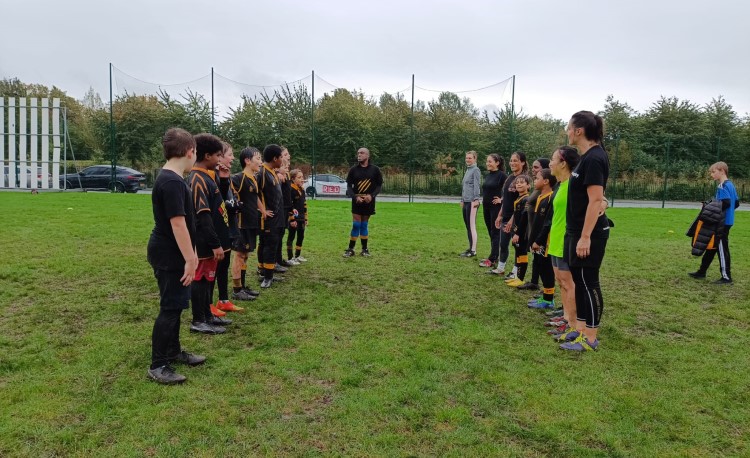
I structured our free, two-hour sessions around 30-minute blocks to deal with these fears. I included:
- A long warm-up, to help with injury prevention, introduce rugby-specific training and allow for late joiners.
- A high-intensity training session, based around core rugby skills, to build fitness and get quick rugby skills results.
- A long mid-session stretch, as a drop-off point or so women can just join in for this section, as an opportunity to change tempo and allow the introduction of familiar exercise (yoga/Pilates) to encourage competency.
The stretch was followed by touch rugby games known as ‘the World Cup final’, an opportunity to put rugby skills into a game. I encouraged the women to note when "it looks like we are playing proper rugby".
I still follow the same format. It works.
Being a mum
The Asics research referred to above reported that becoming a mum is the biggest reason behind women stopping exercising, largely because of time, confidence, cost and not being sporty enough. The same goes for the women at Southwark Tigers RFC.
One of the authors of the research, Dr Dee Dlugonski, said: "Making movement more accessible [might include] providing childcare and catering for all activity levels...[and] being fun, affordable, safe, welcoming and judgement-free". These elements all help to close the gender-exercise gap.
Sport England has also produced a resource pack called ’Go Where Women Are’, to help women to get back into, and then stay in, exercise.
That phrase is key, I think – go where women are. Don’t expect they will come to you – more often that not, they won’t.
What has this got to do with rugby?
Well, being a mum at our rugby clubs could be an opportunity. After all, as mentioned earlier, more than 13 million women said they wanted to do more exercise.
Many women watch their children play rugby and some give their precious time for free, as welfare officers, doing the catering or selling kit, which are traditional gendered activities for women.
"Becoming a mum is the biggest reason behind women stopping exercising..."
But maybe rugby clubs could do better? Perhaps men could make the tea or manage the kit, and clubs could offer women a chance to play our sport on their terms.
Maybe we could help women get back into exercise within our rugby communities? Maybe we should encourage them to spend their exercise pounds in our rugby venues and keep their children involved in our sport?
It makes commercial sense as well as making happier and healthier communities. Rugby is an answer – if we change things up, maybe.
The Lillies’ experience
Some more formal research backs up our experience of the Lillies at Southwark Tigers RFC.
For example, one of our players said, before joining us, that she was worried the "level would be really high and people would be annoyed at me for messing up". But she said the group is "way more fun than she expected."
She described herself as being relatively fit, but, despite this, was worried about "dying on the pitch". What she got from being in the team was, instead, "meeting like-minded local people that I look forward to chatting to every week”. It was, in fact, fun, she was capable and she found community.
Edward Deci and Richard Ryan (1977) developed a theory around intrinsic motivation (as opposed to extrinsic motivation, which are external factors, like money or praise).
The elements that promote an intrinsic motivation to get into, and stay in, sport are:
- Autonomy: Some choice and the fun element
- Competence: You can do it and you will improve
- Relatedness: Being part of something and having social capital
These are the combined elements that will help women – and, indeed, anyone else – get into and stay in our sport.
We can see that these elements worked for our women in Southwark — netball with attitude, and a bit of sports psychology.
Related Files
Newsletter Sign Up
Coaches Testimonials

Gerald Kearney, Downtown Las Vegas Soccer Club

Paul Butler, Florida, USA

Rick Shields, Springboro, USA

Tony Green, Pierrefonds Titans, Quebec, Canada
Subscribe Today
Be a more effective, more successful rugby coach
In a recent survey 89% of subscribers said Rugby Coach Weekly makes them more confident, 91% said Rugby Coach Weekly makes them a more effective coach and 93% said Rugby Coach Weekly makes them more inspired.
Get Weekly Inspiration
All the latest techniques and approaches
Rugby Coach Weekly offers proven and easy to use rugby drills, coaching sessions, practice plans, small-sided games, warm-ups, training tips and advice.
We've been at the cutting edge of rugby coaching since we launched in 2005, creating resources for the grassroots youth coach, following best practice from around the world and insights from the professional game.
